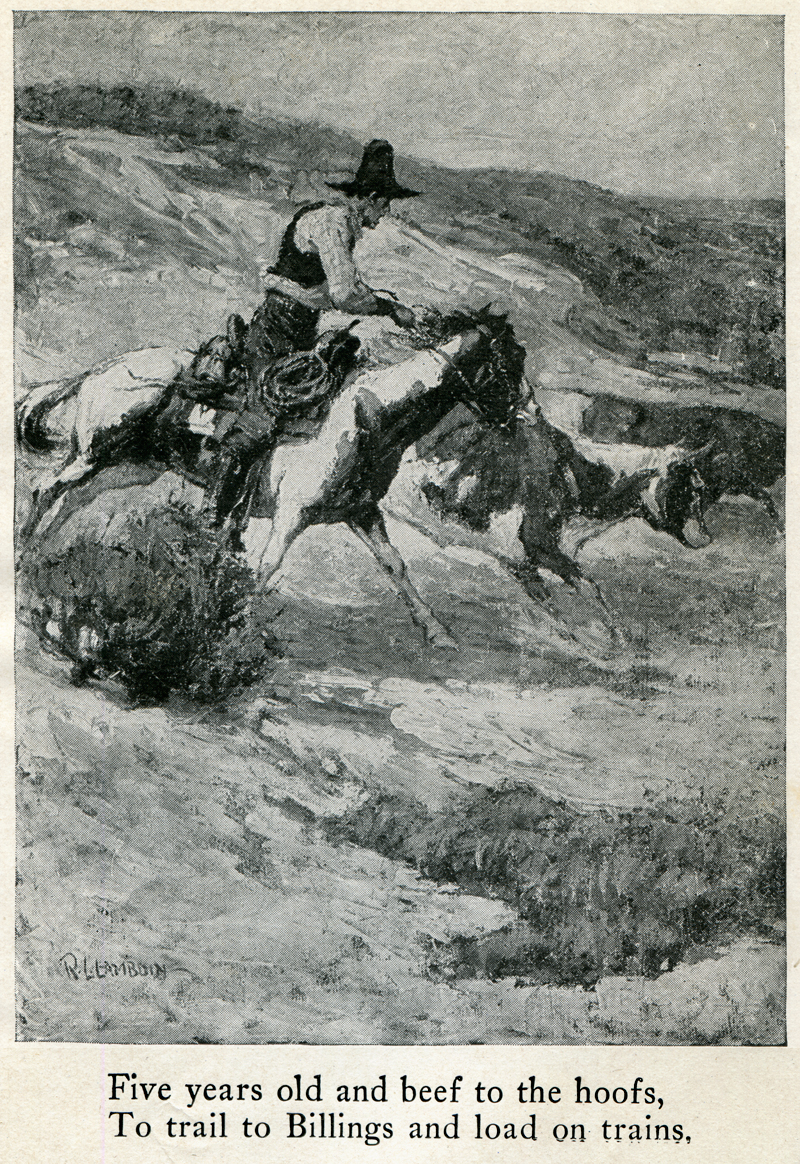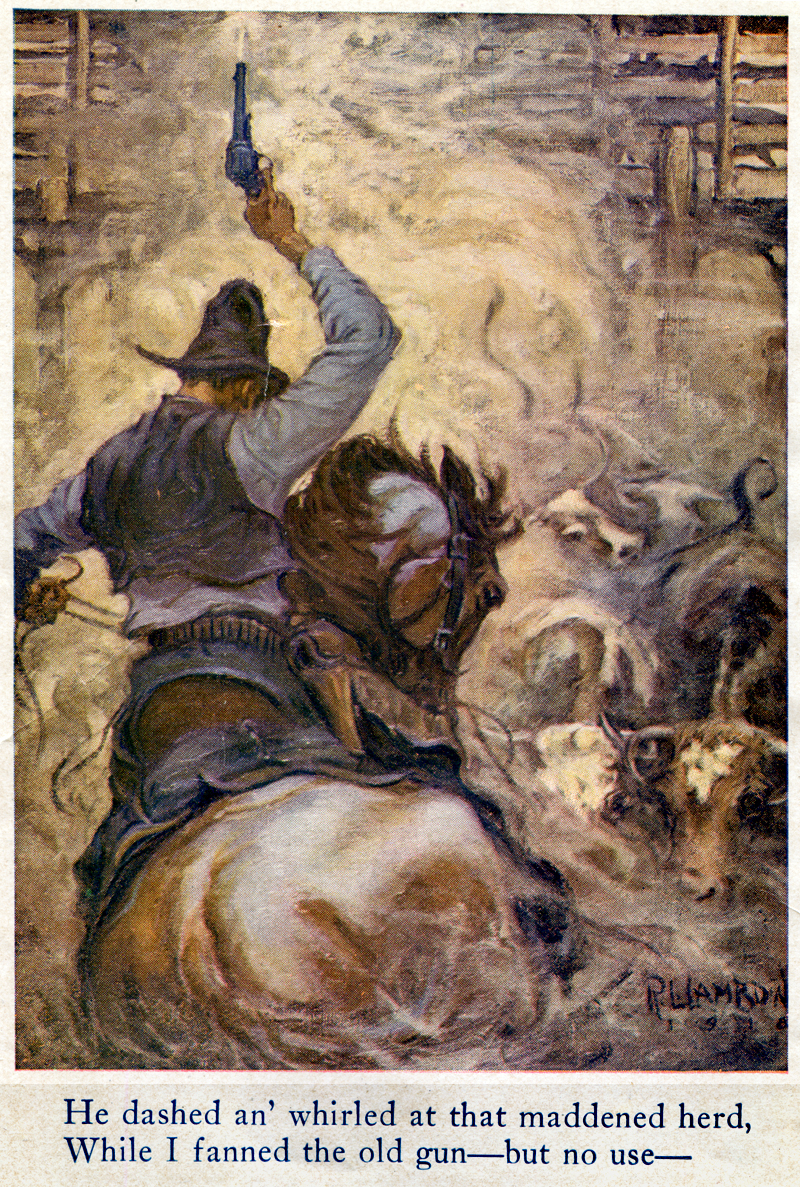|
|
William S. Hart Recites His Poem, 'Pinto Ben'
Actor & Newhall Resident
|
Loading...
In this earliest known recording of William S. Hart's voice, the actor (and by now, Newhall resident) recites an abbreviated version of his original poem, "Pinto Ben." Published in a book in 1919 ("Pinto Ben and other stories" by William S. Hart and his sister, Mary Hart) — and as sheet music, and recited on this Victor record, and recited on the radio — "Pinto Ben" is the story of a pony that gives up his own life to save his master from cattle that are set to stampeding by some foolhardy city men. This recitation was recorded Oct. 18, 1928, in Camden, New Jersey, by the Victor Talking Machine Co. (which was based in Camden). It was the "B" side of Victor record No. 9297. On the "A" side, Hart recites the poem "Lasca," written in 1882 by Frank Desprez (misspelled Depres), a onetime theatrical writer who emigrated from Bristol, England, in 1877 at age 24 and took up cowboying in Texas. "Lasca" is essentially the same story as "Pinto Ben." According to a letter dated June 1, 1929, Hart received $267.13 in royalties from the Victor Talking Machine Company as payment in full under a contract dated October 16, 1928, based on 3,562 units sold through April 30, 1929. Victor No. 9297 was Hart's only Victor sound recording, but he would recite "Pinto Ben" again — the full version this time — on his friend Rudy Vallee's "Fleischmann Hour" radio show on NBC on Dec. 13, 1934. His next known voice recording was his 8-minute monologue for the 1939 re-release of his 1925 film, "Tumbleweeds." The full text of "Pinto Ben" follows, as published in his 1919 book.
PINTO BEN
Eastern folks called it a tragedy story,
The beef round-up cut out a thousand head,
That end didn't pan hard,
An' Ben, Ben wus boss of 'em all;
Your loop might foul on a pass,
Why Bill, — our boss trail foreman,
Ben an' me roped fer money once'd;
Then he stood meek, his sides still a-heavin',
But I wus huggin' him in a minute,
You can make talk o' your solid colors;
The range wus way back, a rim o' the sky;
Segundo Jim a-worryin' a heap,
We wus in a caboose an' had nose-paint,
I told Ben folks get used to them cities,
A thousand cattle wus signed fer,
We couldn't savey their ways, —
When I go back to that minute,
Horns an' hoofs wus beatin' the air,
Jim and me's cussed many times since,
A locoed coyote called a man,
Crack! went Jim's forty-five from the bank,
If I could only make a talk,
As I touched the saddle, he was at 'em
He dashed an' whirled at that maddened herd,
When I swung his head, he know'd,
God! What's that out in front?
Them lean muscles tightened, an' he cleared it clean,
When that sea o' cattle stopped comin',
He wus an ace, never whimpered once'd,
Then the greatest light I ever see'd,
Reckon some o' that blood come out o' my heart,
LW2341: Digitized 2013 by David Veal from original Victor record; record acquired circa 2006 by Leon Worden. |
The site owner makes no assertions as to ownership of any original copyrights to digitized images. However, these images are intended for Personal or Research use only. Any other kind of use, including but not limited to commercial or scholarly publication in any medium or format, public exhibition, or use online or in a web site, may be subject to additional restrictions including but not limited to the copyrights held by parties other than the site owner. USERS ARE SOLELY RESPONSIBLE for determining the existence of such rights and for obtaining any permissions and/or paying associated fees necessary for the proposed use.




